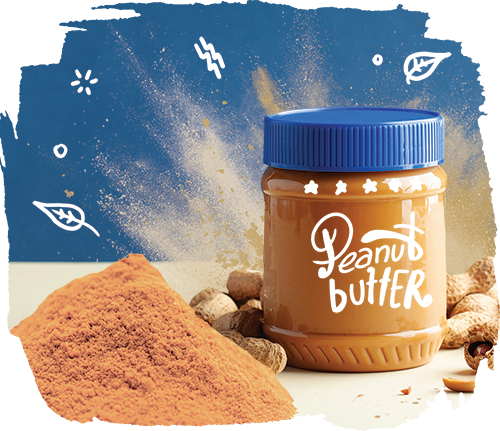Table of Contents
Peanut Butter Powder
Peanut butter powder has been around for almost a decade now and it is still going strong. One could say it is sticking to the roof of the culture's mouth.
You can find numerous recipes online that use peanut butter powder as an ingredient. Less frequent is the explanation of what peanut butter is and what it does for you.
Let's talk about peanut butter powder - what it is, how it is made, who invented it, and why you should use it in recipes. We’ll also talk about its nutrient profile and the many crazy (and healthful) things you can do with peanut butter powder.
Whether you’re vegan, a regular peanut butter lover who wants to experiment with recipes, or both; we can fill in the peanut butter powder blanks for you.

What Exactly is Peanut Butter Powder?
Peanut butter powder is a high-protein, low-fat alternative to peanut butter. It's made from roasted peanuts that have been pressed to remove most of the oil and fat content. This provides the same flavor as the beloved sticky stuff, but with fewer calories and less fat.
In the processing, the majority of the peanut butter fat is removed. What's left in the powdered form is mostly the protein and fiber, and about 85% less fat than the creamy stuff.
A tablespoon of peanut butter powder has 25 calories, 1 (one) gram of fat, 3 to 4 grams of protein, and 1 gram of fiber. By contrast, peanut butter in its natural, spreadable form has 96 calories and 8 grams of fat per tablespoon.
Peanut butter powder can be used in baking, as a topping on toast or yogurt, or as a dip. Yes, a dip. It's easy to use and has many health benefits, making it a swinging snack food alternative for people of all ages.
You don't really need to worry about calories or fat when using peanut butter powder, so it's an ideal snack for anyone looking to reduce their calorie intake without sacrificing flavor. Because the flavor of this stuff is undiminished.
Peanut butter powder is a great source of protein and other nutrients. Which nutrients? Potassium and vitamin E, chiefly. This is a healthy snack choice for everyone.
How is Peanut butter Powder Made?
Roasted peanuts are pressed to remove most of the oil and then ground into a fine powder. A little sugar and salt are present in some brands. Kapow. You're done. You would not mistake peanut butter powder for a heavily processed food.
Peanut butter powder is thus an affordable and convenient snack option that offers great health benefits with very few calories or fat.
You can use peanut butter powder as a substitute in recipes or add it to smoothies, or even stir-fries for added protein and flavor. Peanut butter powder is a delicious and nutritious option for anyone seeking a healthy snack with minimal calories and fat.
What if in the middle of your peanut butter powder exploration you start to have intense cravings for the real stuff? Simply add a little water and the powder can be reconstituted as something you can smear on toast.
It won't have the same creamy texture as the stuff that comes in a jar, but it will be made spreadable with the addition of a little moisture.
If you simply want to add it to smoothies, yogurt or other recipes with their own liquidity, sprinkle in the peanut butter powder and you're there.

Who Invented Peanut Butter Powder? And Why?
A guy named J.C. Bell discovered a way to make powdered peanut butter out of peanut flour, and started a company around his innovation in 2007. He went out into the marketplace and began selling his peanut butter powder as a protein supplement that tasted great. It tasted like peanut butter!
Of course it was a hit. He began marketing it to health-related companies whose customers were fitness enthusiasts who were not that crazy about the taste of whey protein products at that time. The peanut butter powder took off as people began utilizing it in their smoothies and shakes.
Why Peanut Butter in a Powdered Form?
Peanut butter powder is a plant-based protein. It's lower in fat, sugar, and calories than traditional peanut butter, and its powdered form makes it extremely adaptable to whatever (pea)nutty use you want to put it to. As mentioned, the peanut butter powder can easily be mixed into smoothies, shakes, oatmeal, baked goods -- you name it.
The powdered form makes measuring the peanut butter for recipes a snap. And having the delight of peanut butter in a powdered form adds so much flexibility and neatness to any delicious innovation of your own you might want to come up with.
It can be used as a replacement for regular peanut butter in recipes if you're trying to eat healthier. Peanut butter powder is a versatile vegan snack whose powdery texture, light caloric footprint and ease of use frees the peanut-butter-loving imagination to go to new culinary places.
Peanut Butter Powder's Nutrient Profile
Peanut butter powder is a high-protein, low-fat alternative to traditional peanut butter. It is also an excellent source of dietary fiber and healthy fats. Peanut butter powder is also naturally gluten free and contains no added sugars or preservatives.
Regardless of your dietary preferences, peanut butter powder offers a nutritious and versatile option for adding protein to your diet without sacrificing flavor or nutrition. Peanut butter powder also offers B vitamins, manganese, copper, magnesium, phosphorus, and zinc.
What You Can do with peanut Butter Powder
Peanut butter oatmeal protein cookies, peanut butter dark chocolate, peanut butter powder almond balls – need I go on? Whether you're looking for a peanutty flavor in your dishes or want to add protein and healthy fats to your diet, peanut butter powder is your dream come true. This tasty additive adds a layer of nutty flavor without the caloric bomb of the creamy stuff.
Adding peanut butter powder to smoothies makes it simple to boost the fiber and protein level (of a smoothie!) while giving the drink a nutty flavor. Add a tablespoon to a normal beverage and mix in the peanut butter powder and prepare for wow.
Marinades? Okay. A savory and sticky marinade is made by combining a tablespoon of peanut butter powder with 1 tbsp water, 1 tbsp soy sauce, garlic, ginger, and chives - and anything else that suits your fancy.
Use the marinade for meat, seafood...the sky's the limit. And as we are already aware from our use of Indonesian peanut sauce, the flavor of peanuts makes an eye-widening taste sensation out of the least likely foodstuffs.
Baking? Yep. Peanut butter powder will work for baking. Use it alongside a traditional flour for flavoring, or in standalone recipes to sprinkle the magic of peanut butter into -- whatever baked miracle your imagination comes up with.
Peanut butter powder's ease of use and no-mess character make it a kitchen experimenter's dream. So go ahead. Dream into action.

FAQs
What are the benefits of peanut butter powder?
Peanut butter powder is a concentrated form of nut butter that is packed with protein and fiber, making it an ideal snack for those looking to lose or maintain weight. Not only is peanut butter powder low in calories (as compared to regular peanut butter), but it is also lower in fat. Peanut butter powder contains vitamin E, which helps to protect the body from damage caused by free radicals, magnesium, zinc, iron—and manganese for healthy bone density and immune system support.
How can I use peanut butter powder to manage my weight?
Peanut butter powder is made from defatted peanuts and has 85% fewer calories than regular peanut butter. It's a great substitute for recipes like smoothies, dips, and sauces that call for peanut butter. The natural plant fiber in peanut butter powder can help you feel fuller longer, helping you to stay sated between meals.
Is peanut butter powder healthy?
Yes, it is. Powder peanut butter is a great option for those looking for a healthier peanut butter alternative. Roasted peanuts are ground into a powder from which the peanut butter fats have been mostly removed, which makes it lower in fat than regular peanut butter. Since the fats in regular peanut butter are heart-healthy fats, so are the trace fats that remain. Peanut butter powder contains high levels of protein, vitamins and minerals – and that all-important fiber -- nature's gift to your digestive tract and your weight management program.



